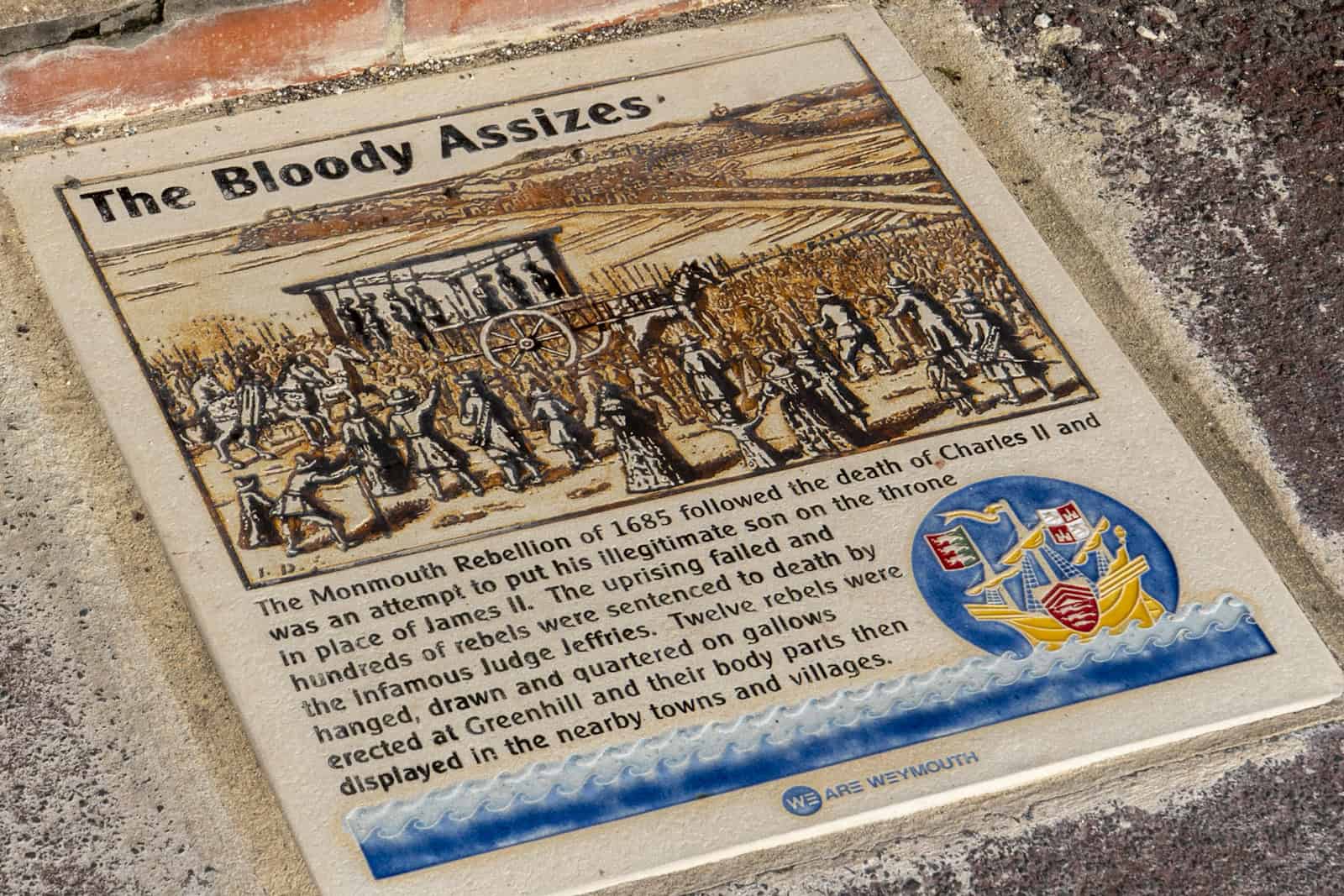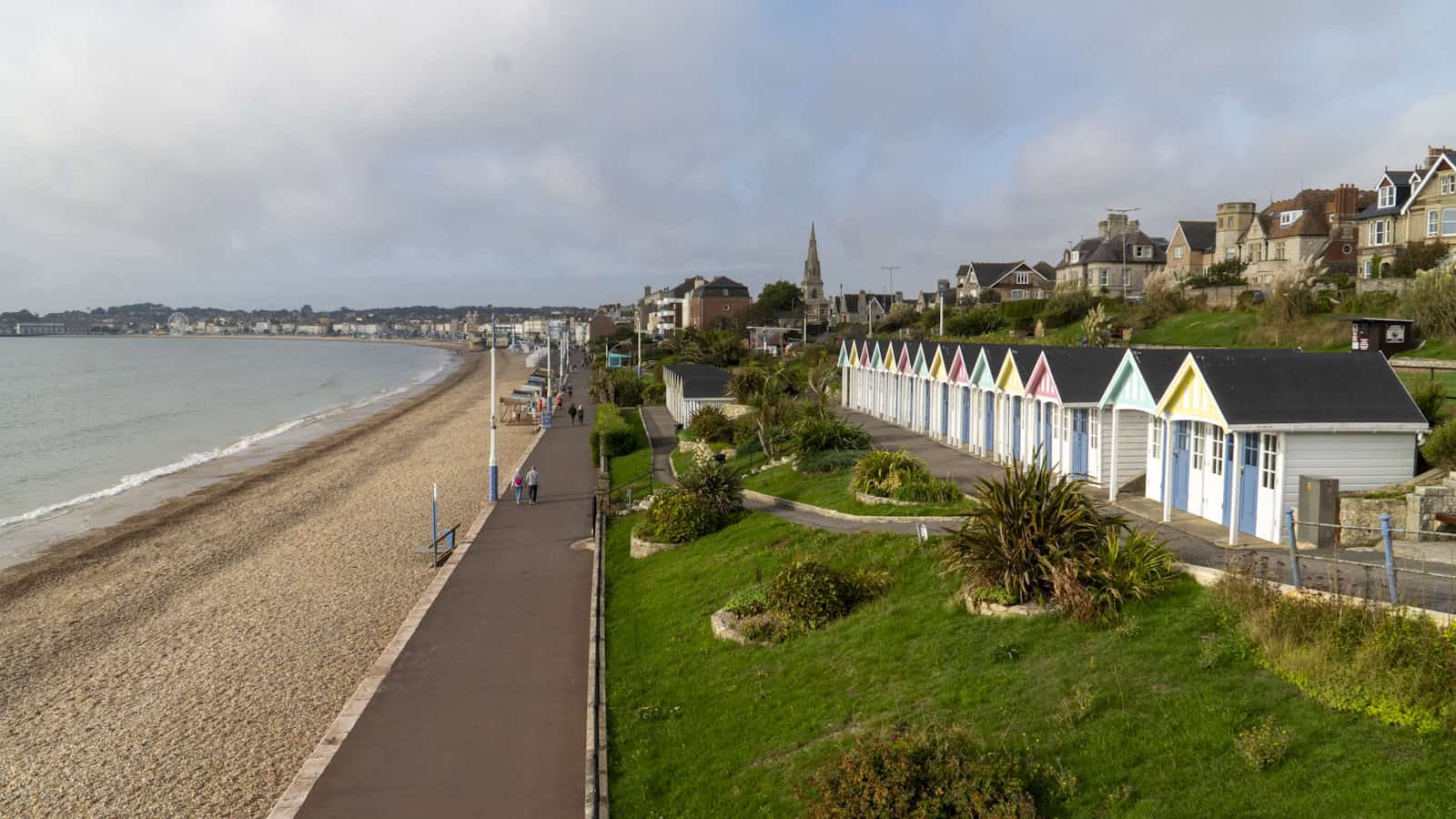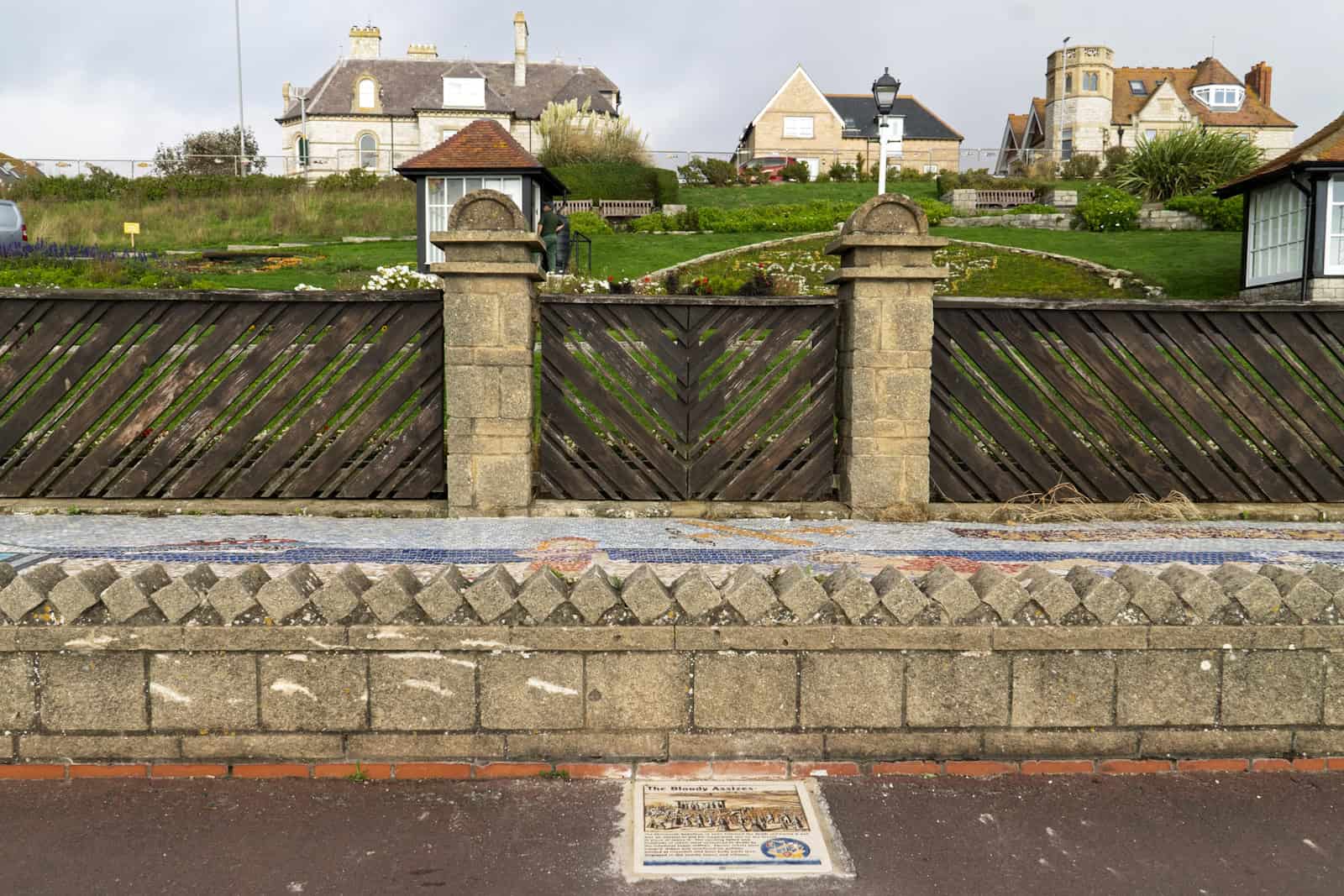A chilling episode from Weymouth’s past has been commemorated with a new plaque on the Promenade at Greenhill.
We Are Weymouth has unveiled the latest addition to the town’s heritage trail, remembering the execution of twelve local men in September 1785. The men were hanged, drawn and quartered at Greenhill for their part in the Monmouth Rebellion, a brutal punishment handed down during the infamous ‘Bloody Assizes’ by Judge Jeffreys at the Antelope Hotel in Dorchester.
The new installation brings the total number of plaques on the heritage trail to 19.

Graham Perry, Chair of We Are Weymouth, said:
“It is ironic that the first historical mention of Greenhill, one of the most beautiful spots in Weymouth, is in relation to this horrific event. The installation of this plaque helps us to remember the many layers of Weymouth’s history – both the celebrated and the sombre – and ensures they are not forgotten.”
The heritage trail itself charts key moments in Weymouth’s story since the unification of Weymouth and Melcombe Regis under Queen Elizabeth I in 1571. Visitors following the trail can discover the arrival of the Black Death, the town’s rise as a fashionable Georgian resort, and its vital role during the D-Day invasion.
Two further plaques are planned later this year along Preston Beach, telling stories from Lodmoor. When complete, the route will run from the Roman temple at Bowleaze through to Nothe Fort, offering a continuous journey through centuries of local history.

Today, Greenhill Gardens is a place of calm, colour and sea views – a far cry from its grim association in the late 18th century. But with the new plaque in place, the contrast between past and present offers a poignant reminder of the town’s layered heritage.
The project is part of We Are Weymouth’s wider work to celebrate the town’s unique history, strengthen community pride, and create engaging experiences for both residents and visitors.


Leave A Comment